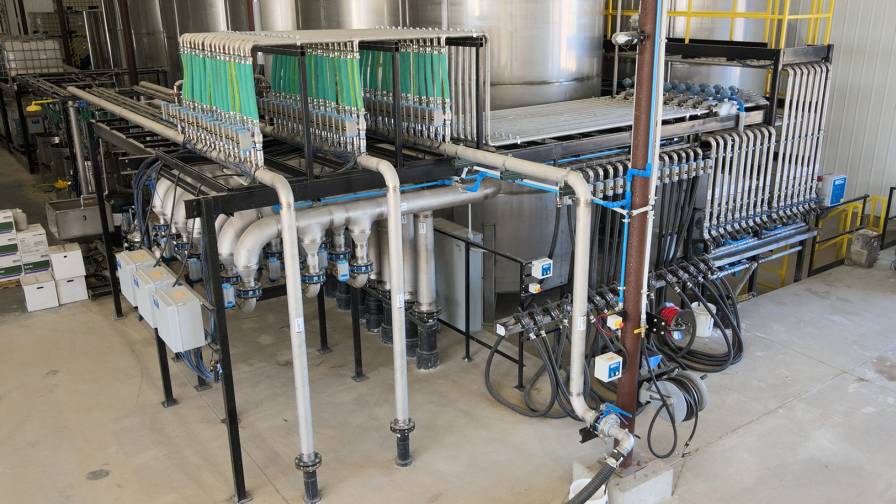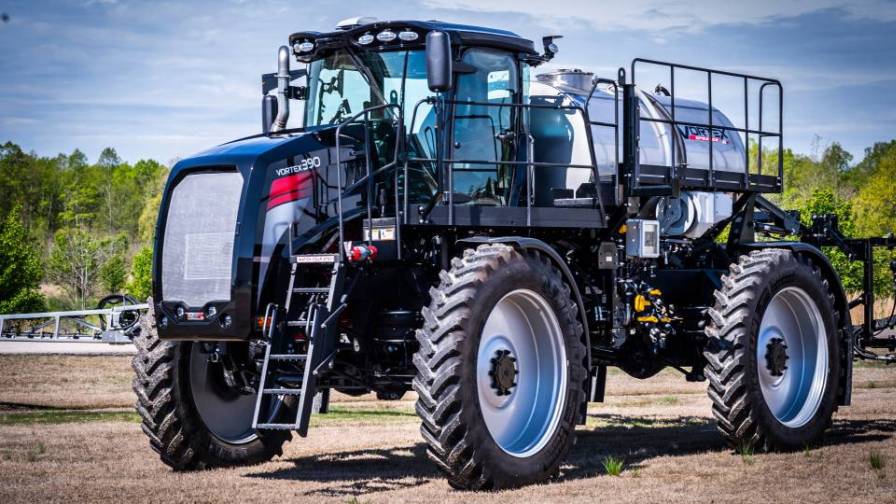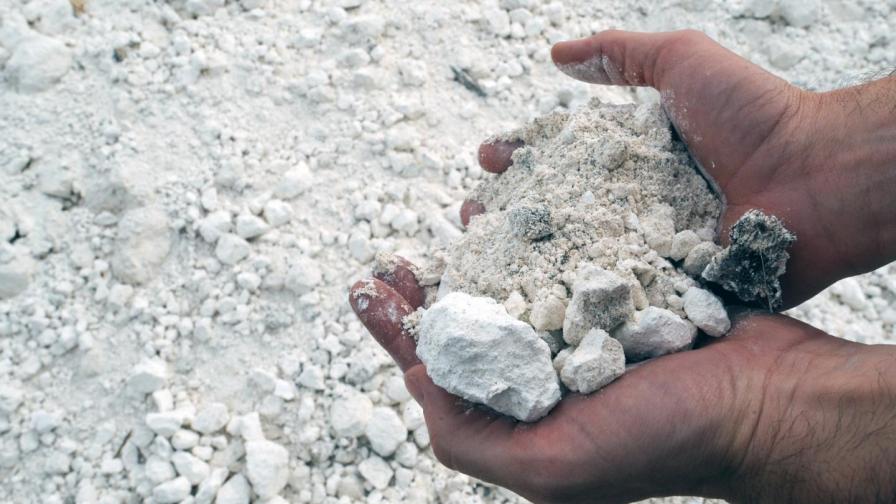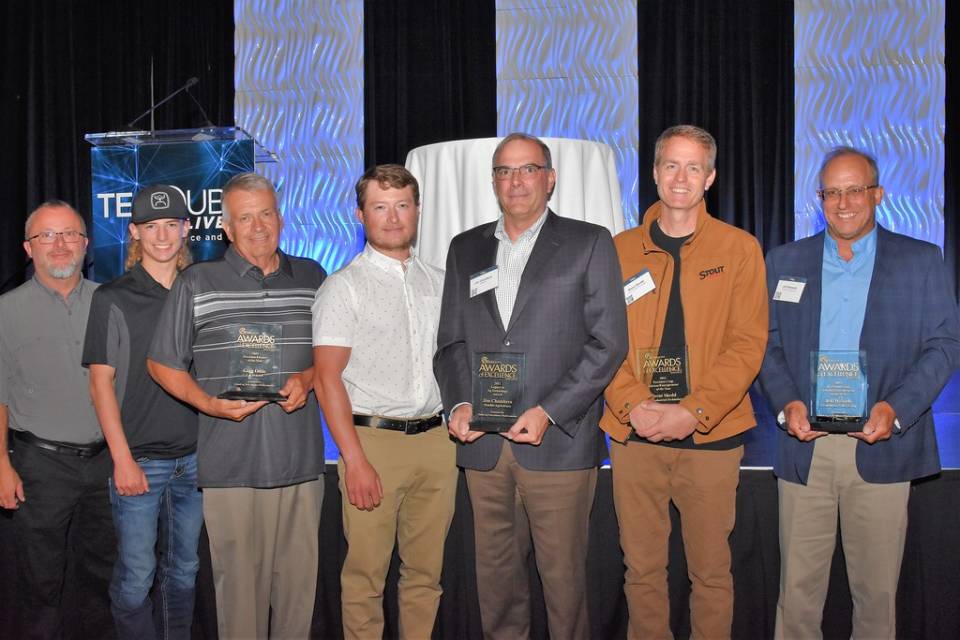Micronutrient Suppliers Enter 2020 as Resolute as Ever
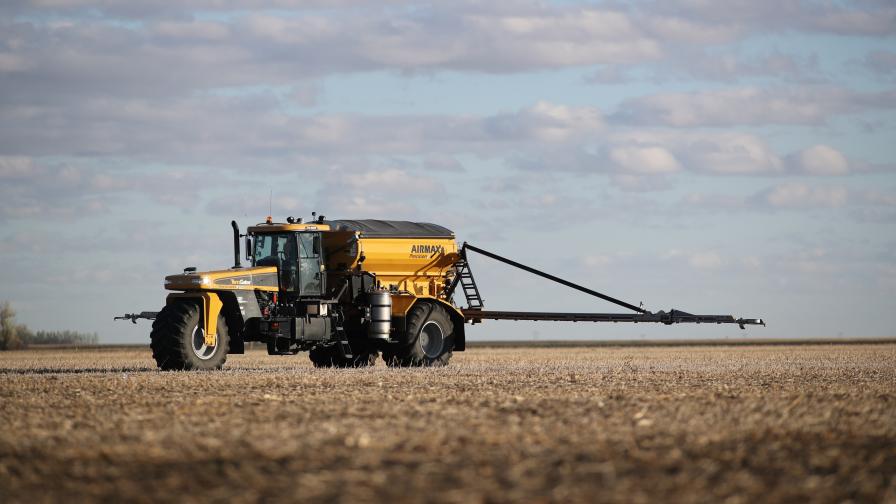
There’s strong optimism for micronutrent demand in 2020 despite a disappointing 2019 growing season in the U.S. Photo courtesy of The Mosaic Co.
From seemingly sea to shining sea, micronutrient manufacturers have America’s row crops covered in products ranging from boron to magnesium to zinc.
Advanced Micronutrient Products (AMP), for one, is spreading facility-wise in all directions from its headquarters in Reese, MI.
“We will continue to produce dry granular micronutrients at our three plants. The products are tried and true and meet the needs of most dealers and producers,” Dale Edgington, AMP’s Procurement/ Production Manager, says. “We provide significant quantities of liquid zinc sulfate products on the West Coast from our Ultra Yield operations and have added new proprietary liquid products for sale from Cameron Micronutrients in other regions.
“We are also in the patenting process for a unique new technology that promises to be a game changer for the Midwest. There is rarely a one size that fits all. Whether it is phosphate with zinc, potassium with magnesium, or boron with zinc, the soils, climate, crops, and farming practices are different from one end of North America to another.”
Industry optimism overall is headed in a northerly fashion despite a disappointing 2019 growing season in the U.S.
Nachurs, with increased sales volume, will continue to increase production capacity and storage at all seven of its production facilities in North America, according to Tommy Roach, Vice President of Product Development and Technical Services.
“We will continue to focus on the micronutrients that growers typically think of — i.e., zinc and manganese — but are putting more focus on boron, molybdenum, and cobalt because of the many physiological processes they regulate,” Roach says.
The Andersons is set to release several new products, including a line that, according to Tony Donoho, Director of Sales, Specialty Nutrients, is “ideal” for fertigation. “We are also focusing on addressing the boron needs of the fields and future crops with both current and new products,” he says. “We ran different trials (last) growing season and have seen some great results with our boron products that we are excited to start sharing with our dealer network.”
BRANDT is focused on new plant health technology, specifically new chemistry that improves plant health and productivity. The technology, according to Brian Haschemeyer, Director of Discovery and Innovation, is focused on several areas: 1) new foliar nutrient-delivery systems; 2) new enzyme and biological enhancers that increase nutrient availability; and 3) new plant growth regulators that control the plant’s use of glucose.
The company’s new patent-pending enzyme technology, BRANDT EnzUp, is expanding and now offered with additional micronutrient packages in granular and liquid forms for row crops and specialty crops, Haschemeyer says. Meanwhile, BRANDT’s Smart System foliar micronutrients continue to gain approvals for use as tank mix partners for new cropping systems and herbicides. “They are designed specifically for use with glyphosate, dicamba, and 2,4-D,” he says.
Company News
- Advanced Micronutrient Products – Product offerings include boron, copper, manganese, and zinc. AMP operations reports that it has experienced increased demand for homogenous NPK + micronutrients in addition to multi-element micronutrient products that fit the needs of a specific crop or geography. “We will continue to meet this demand for customized products while seeking the best source of raw materials from around the globe,” Edgington says. “Most of our raw materials come from North America, but we also have strategic partners in other places that bring us real opportunities for growth in boron, zinc, manganese, and copper.”
- Agro-K – The company continues to focus on plant sap testing vs. standard tissue testing, as sap testing provides real-time data on nutrient deficiencies/excesses, “giving growers far more accurate information on which to apply foliar micronutrients to positively affect yield,” Midwest Sales Manager Rob Ford says. “We continue to see row crop growers in many areas testing combination micronutrient/biostimulant mixes to push yields and improve on-farm sustainability.”
- Aqua-Yield — The company uses nanotechnology to improve micronutrient uptake. Its Enhanced NanoShield Delivery carries nutrients more effectively in all cropping systems and input programs, CEO Clark T. Bell says. NanoZinc, compared to commodity zinc products, delivers, on average, a 20% increase in zinc uptake on foliar tissue levels, Bell says. “We have seen this time and again in specialty crops like pecans, peaches, and citrus, and in commodity crops like soybeans, corn, and wheat. It is affordable, easy to incorporate, and efficient.”
- AZOMITE Mineral Products — The company remains focused on building its scientific database and working closely with its customers to enable their success. “We continue to spread the word about AZOMITE and what it offers the industry,” President and CEO Jim Phillips says. “It fits into every fertilization program, and independent research shows the potential improvements of incorporating AZOMITE.”
- BRANDT — New corn and soybean yield world-record holders Randy Dowdy and David Hula are using BRANDT Smart System foliar nutrients and BRANDT EnzUp on their farms, the company says, adding that the products were used in the record-setting plots. “BRANDT EnzUp is our new shining star,” Haschemeyer says. “The patented enzyme specialty product is applied at planting and is helping get plants off to a strong start. It helps prime the soil for success by enriching the soil environment around the root zone.”
- CHS Agronomy — The company’s focus last year, after the delayed spring and difficult planting conditions, turned toward helping its retail customers manage alternative methods of nutrient applications. “We saw more foliar micronutrient applications as well as an increased need for top dress applications,” Paul Gerdes, Proprietary Products Manager, says. “And we recommended the use of stabilization and efficiency products where they are best applicable. For example, using products like N-Edge nitrogen stabilizer helps reduces loss of nitrogen.” Trivar, the newest addition to the company’s Levesol portfolio, harnesses three unique modes of action to help keep micronutrients and phosphorus soluble in the soil and available for plant uptake.
- Helena Agri-Enterprises — The company endured the 2019 season, thanks in large to its Coron line of controlled-release foliar nutrition, Josh Byford, Brand Manager, Nutritional and Coron Brands, says. “Coron provides our customers the ability to address and/or supplement their fertility needs in season in a very timely manner,” he says. “We know every year is different, so we’re always looking for new ways to help our customers adjust. At Helena, we rely on sound, agronomic solutions, proven to help our customers achieve success.”
- Midwestern BioAg —The company will continue to invest in its TerraNu carbon-based fertilizer lineup, which launched in late 2017. Duane Siegenthaler, Vice President of Strategic Sales, says, “Distribution across the Midwest continues to grow and on-farm results consistently prove the positive ROI the product delivers. With a unique, highly soluble carbon base, TerraNu products stimulate the soil biology while increasing the nutrient uptake and plant availability, all in an easy-to-use, homogenized granule.” At a formulation level, TerraNu MicroPack provides a complete micronutrient package that can be added to any standard blend, while TerraNu Ignite provides a similar complete micronutrient package as part of an all-in-one, N-P-K stand-alone.
- Miller Chemical and Fertilizer — The company will focus on increased education and awareness of its patented calcium-based product that facilitates movement through the plant while reducing cell leakage during abiotic stress periods, Randy Edwards, Vice President of U.S. Sales, says. “We continually focus on new product offerings into specific crops through our channel partners.”
- The Mosaic Co. — The company continues to plan for increases in demand and sales of its performance products — MicroEssentials, Aspire, and K-Mag — over the next five years, Director of Performance Products Tom Fry says. “We have made no changes to our anticipated needs by our customers over the long term,” he says. “The new Aspire formulation, with two forms of boron, continues to show impressive yield performance, with greater flexibility in timing of application.”
- Nachurs — The company continues to see “huge growth” in its Finish Line product, which is a balanced primary nutrition package with a high load of zinc, manganese, copper, and boron for use on all crops in foliar sprays, Roach says. “This can be used with new herbicide technologies,” he adds. Nachurs last year released Nachurs Balance, which is a balanced primary nutrition with boron, molybdenum, and cobalt. This is for use in crops to help improve nitrogen utilization and is also labeled for use with Xtendimax technology.
- Nutrient Technologies — As part of the De Sangosse group of agricultural companies, Nutrient Technologies is afforded the opportunity to tap into a global network of knowledge and innovation to deliver best-in-class products to agriculture markets in the U.S., Jeff Reimche, Director of Technical Operations, says. The company is currently evaluating several micronutrient and biostimulant products to introduce to the permanent and row crop markets in an effort to expand its product categories and geographic presence. One “exciting” area of research, Reimche says, is bio-based ingredients and how plants can recover better from environmental stresses in adverse growing conditions. Making micronutrients more available in the soil is also a focus that will save growers time and money while improving quality and yield, he adds.
- The Andersons — The company is expanding its MicroSolutions category to include a line of biological products. It has conducted several greenhouse and field trials and is excited about the benefits it has seen.
- Timac Agro USA — The company, which adheres to three pillars — soil biology, crop biostimulation, and fertilizer efficiency — last year launched a new version of its patented liquid formula Fertiactyl Series to target a specific nutritional need — zinc — for Midwest U.S. corn crops. “Our Fertiactyl Corn Plus provides the solution for this nutrient deficiency,” Chief Sales Officer Daniel Stephens says. “We will continue this strategy for the future and will soon launch a new biostimulant technology that is focused on monocot crops and manganese as a micronutrient.” With a growing U.S. sales force, Timac Agro, Stephens says, will be able to analyze soil samples and listen to growers’ needs. “We also have the industrial capability to customize formulations according to those needs,” he adds.
- Verdesian Life Sciences — The company last year introduced additional formulations to its MicroSync Granular Micronutrient portfolio of products, which were developed for better micronutrient availability, better product accessibility, and better plant update, with easy handling and application. MicroSync IronClad IDC is formulated to perform in high pH environments in which iron deficiency chlorosis (IDC) is prevalent. A granular product designed to be applied in furrow or in a banded application, it provides chelated iron and zinc in a protected form to ensure crop availability and uptake. For 2020, Verdesian will continue to focus on the adoption of its MicroSync Granular Micronutrient portfolio across diverse markets and cropping systems throughout North America. “As the ‘Nutrient Use Efficiency Company,’ we are delivering the message to dealers and farmers about the importance of having a maintenance program for replacing the micronutrients taken out of the system each season by our harvested crops,” Jake Socherman, Vice President of Sales, Specialty Micronutrients, says. “In support of these efforts, Verdesian Life Sciences is building a team of specialized Micronutrient Product Managers to support the broad portfolio of micronutrients that we offer.”
- WinField United — The company continues to invest heavily in micronutrient research through its work at the WinField United Innovation Center in River Falls, WI, as well as at nearly 140 Answer Plot locations across the country. “Our pipeline is rich with unique and patentable products that will continue to help our retail owners and their farmers well into the future, regardless of their seed traits or what Mother Nature serves up for us,” Brant Gilbert, Director of Marketing-Plant Nutrition, says. Additionally, owning two soil- and tissue-sampling labs — SureTech Laboratories and Solum Labs — allows WinField United to help farmers select the correct micronutrients for their soil types based on data rather than intuition. The data collected from these labs feeds into an extensive database of more than 500,000 tissue sample results, Gilbert says.
- Yara North America — The company has grown its team the last two years to better support its customers and their growers, according to YaraVita Product Manager Debbie Watts. YaraVita is a full-service portfolio designed to support balanced crop nutrition. Application of the YaraVita Procote micronutrient coating occurs at the retail level, Watts says, “so growers don’t need to be concerned about this additional step in their planting programs. While micronutrients are an important part of the blend, they are spread throughout the soil, making it difficult for the plant to reach them. With YaraVita Procote, every granule or prill has micronutrient content, supporting homogenous crop growth.”

